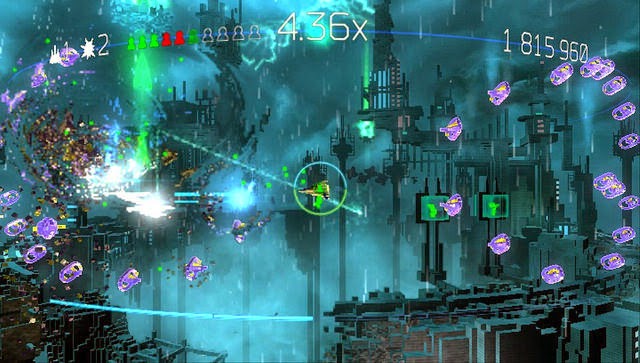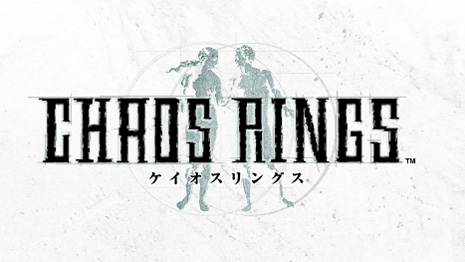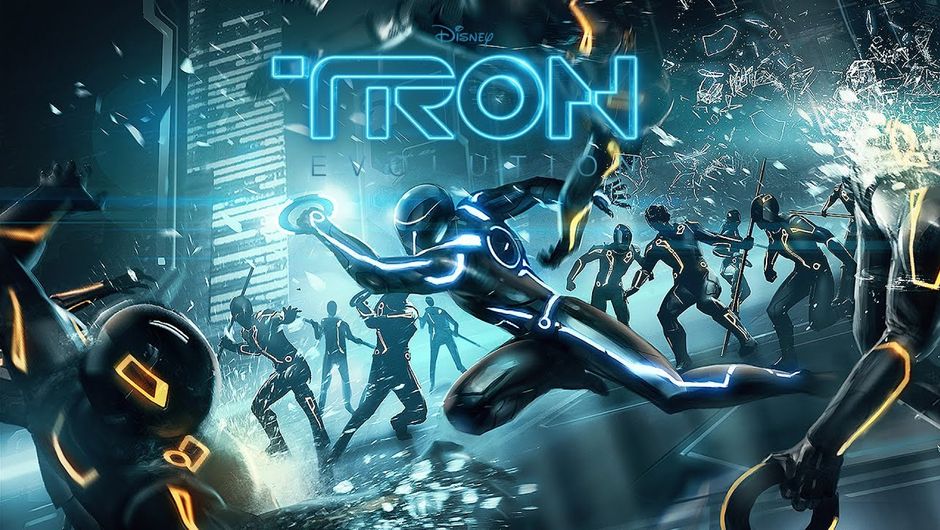I’ve said it before and I’ll say it again: I’m tired of zombies. The walking dead have been thoroughly exhausted from their march through seemingly every shooter game to be produced in the last decade, and then some. They aren’t scary anymore. There’s nothing new to be done with them. And no matter how many developers try, zombies just make a bad crutch to lean on when your game is need of some gravity. The fact that Plants vs Zombies exists as one of the better uses of the infected should give you an indication of just where they stand in the industry.
Resident Evil: Revelations doesn’t change that. Instead it just sidesteps the issue entirely and breathes new life into the Resident Evil series without sacrificing the core of what has kept it running for so long.
Graphics
It’s somewhat difficult to judge the graphics of a game in these particular circumstances. Resident Evil: Revelations was originally released towards the end of 2012 exclusively for the Nintendo 3DS, and by that platform’s standards the game looks phenomenal. The level of detail and visual fidelity is some of the best, if not the very best the 3DS currently has to offer. However, what’s impressive on a handheld device is not necessarily so amazing when blown up to 1080p and displayed on the big screen. Earlier this year an enhanced port of Revelations was released for the Xbox 360, Playstation 3, WiiU, and PC. While the graphics were overhauled effectively for these platforms, indications of the game’s origins as a handheld title still remain. Light shining through a grate in the ceiling casts eerie shadows on the floor, but there’s no shadow cast on your character as you move through. Certain textures seem to have been missed in the conversion to high-resolution. And while lip-syncing is added where there was none on the 3DS (bar cutscenes), it’s clearly tacked on after the fact. However that’s not to say that Revelations is an ugly game. If anything, seeing just how easily it scales up to consoles proves how good the graphics are on the 3DS. But should you never have Nintendo’s handheld to compare to, know that you’re in for a fine graphical experience—just be prepared to see some things along the way that would be considered oddly low detail for such a recent release.
Story
Resident Evil: Revelations feels like an action movie of last decade, complete with a gymnastic, gun-wielding heroine, her trusty sidekick who’s equally as likeable but just not quite as cool, a quieter, handsomer man who is said heroine’s only real match, a duo of nerds for comic relief, and a few other folks whom you’re never quite sure whether to trust right up until the climax when all is revealed. And quotes of old literature mixed in for no apparent reason—can’t forget those. Yes it’s all a bit cliche, but if it fits your style, they’re wonderfully entertaining cliches. Though sometimes predictable, the storyline constantly remains just complex enough to be hard to figure out, and interesting enough to keep you guessing and moving on to find the answers. It’s all static characters here, but the lack of development is compensated for by slowly revealing the backstory of each one, so that as the player you come to know and care about the characters not because of how they grow, but because of what they’ve been through to bring them where they are. All of it is a well-rounded, well thought-out, and refreshing change from the norm for games of this genre, while not being so different as to appeal to an entirely different crowd–though that’s not to say you won’t enjoy Revelations if other Resident Evil games aren’t really your thing.
Gameplay
In a day and age where mindless shooters sell millions of copies and even certain other Resident Evil games aim for action over substance, Resident Evil: Revelations is pleasantly thoughtful and intentional. You’ll often find yourself wishing you could run faster, and that’s a good thing. Although movement and activity is indeed restricted, the game’s limitations are rarely frustrating, but rather create much of the action’s intensity by forcing you to think before—and while—you act.
Use of space is also very intelligent. Very few games can reuse the same areas three times in one storyline and give a continual sense of purpose to each one. The bulk of the game is directly connected and fully explorable at any point in time. Need health or ammo? Go on an expedition to find any you might have missed. Without giving any spoilers, you not only feel somewhat trapped, but also that you’re using every resource available to escape.
It’s elements such as these that inspired the premise tagged onto the title of this review. Resident Evil Revelations isn’t about the zombies. They’re there, but the game consistently de-emphasizes them by simply putting them in your way to a much bigger objective than simply eliminating everything in sight. Half the time your enemies won’t be former humans at all, but infected wolves, sea creatures, and even giant lizard-frog-things. None of them are especially frightening, but ammo is scarce enough and your health drops fast enough that you will tend to regard any danger with respect.
Of course, no shooter would be complete without a multiplayer mode, which Revelations offers in a way just as unique as the rest of the game. What Raid Mode brings to the table is a two-man co-op blast through certain areas from the campaign, but with some RPG mechanics mixed in for motivation. You and your partner will run into one area, gun down a bunch of enemies, go into the next area, rinse and repeat. Rewards come in the form of experience points and virtual cash, which will score you new weapons, characters, and outfits. Games only last 5-10 minutes, so it’s easy to get hooked into playing ‘just one more round’ four, five, six times, but unfortunately Raid Mode’s longevity is about as limited as the scope of its gameplay. While working with one other person against AI is fun for a while, it will inevitably get old as the challenge of fighting a computer wanes. It’s hard to imagine how else Capcom could have brought the pacing of the campaign into a multiplayer arena, but as it stands Raid Mode is far more of a bonus than a selling feature.
Controls
While of course home consoles and PCs don’t struggle in the least with FPS/TPS controls, on the game’s original system, the Nintendo 3DS, things get a bit more tricky due to the lack of a second thumbstick. Thankfully Revelations does take advantage of the oddball but very useful Circlepad Pro addon, but honestly it’s surprisingly unnecessary with not the default control configuration, not the secondary controls, but the third; the last on the list. Control Type C will use the 3DS’s ABXY buttons to control the camera and relegate other functions to the Dpad, touchscreen, and triggers. While such a setup may not afford the precision necessary for faster shooters, the more deliberate pacing of Resident Evil: Revelations suits the 3DS quite well without any additional hardware—provided you configure the game properly.
Conclusion
Resident Evil: Revelations is a standout title both in its series and its genre. Although it takes place between Resident Evil 4 and 5, the game stands very well on its own and will draw in both new players with no prior Resident Evil experience and longtime series fans who enjoyed Revelations’ bookend games. Capcom has made a zombie game that isn’t as dead as a zombie itself, and I applaud the greater emphasis on storytelling and exploration over huge action pieces and fear factor. From the perspective of someone who is mostly outside the series, Resident Evil: Revelations is easily the best series title in the past decade, and perhaps also the best and most memorable third-person shooter of this console generation. It’s highly replayable simply because it’s just that good–and honestly, that’s something I haven’t felt about a game (at least that’s not an RPG) in the last ten years.










